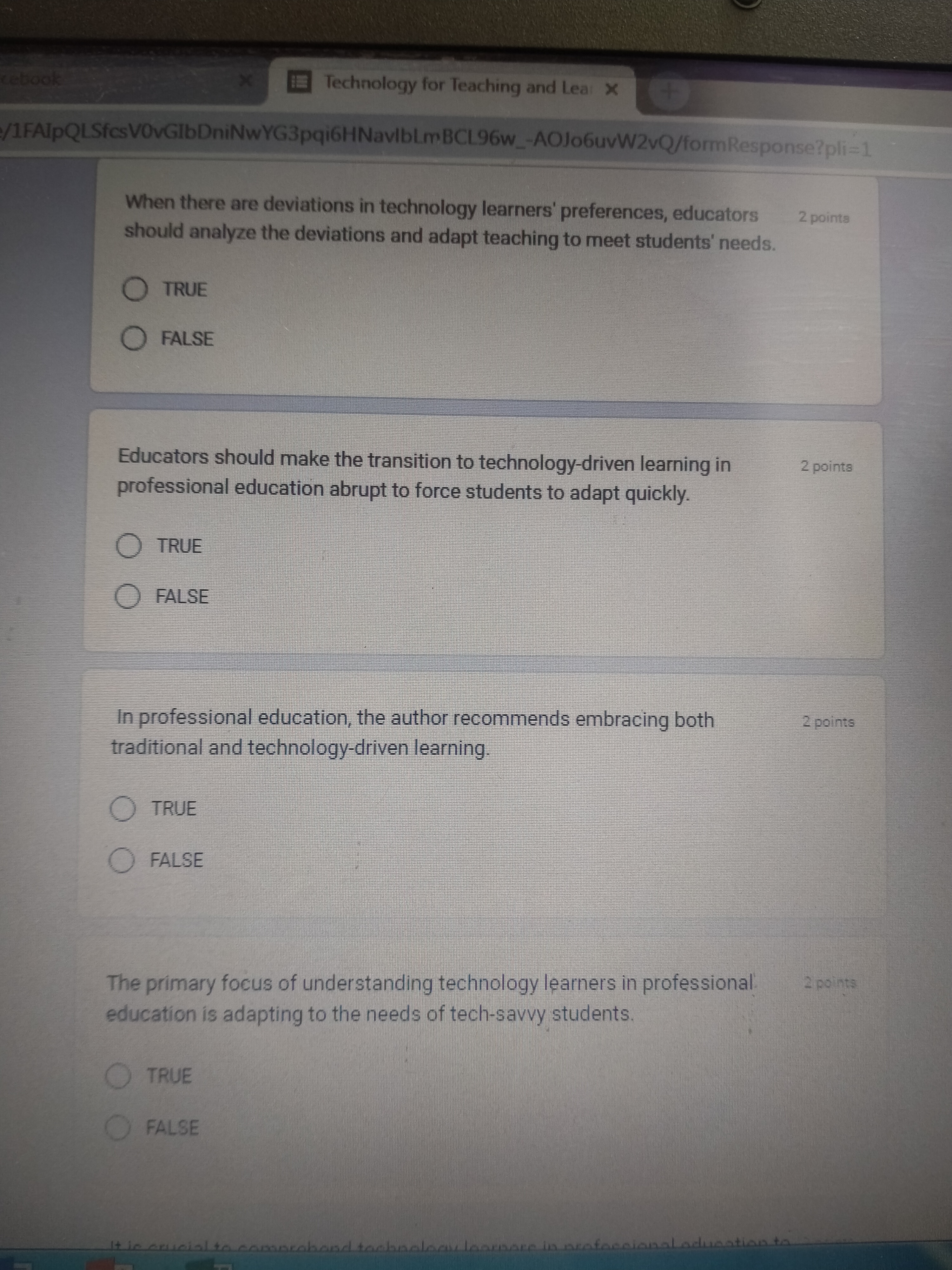When there are deviations in technology learners' preferences, educators should analyze the deviations and adapt teaching to meet students' needs. TRUE or FALSE? Educators should m... When there are deviations in technology learners' preferences, educators should analyze the deviations and adapt teaching to meet students' needs. TRUE or FALSE? Educators should make the transition to technology-driven learning in professional education abrupt to force students to adapt quickly. TRUE or FALSE? In professional education, the author recommends embracing both traditional and technology-driven learning. TRUE or FALSE? The primary focus of understanding technology learners in professional education is adapting to the needs of tech-savvy students. TRUE or FALSE?

Understand the Problem
The question presents several true/false statements regarding educational practices related to technology learners and the recommendations for adapting teaching methods. The purpose is to evaluate understanding of how to effectively teach technology-savvy students in a professional education context.
Answer
["TRUE","FALSE","TRUE","FALSE"]
["TRUE","FALSE","TRUE","FALSE"]
Answer for screen readers
["TRUE","FALSE","TRUE","FALSE"]
More Information
The first statement emphasizes the importance of adapting teaching to meet students' needs based on their preferences. Abrupt transitions to technology-driven learning are generally not recommended as they can lead to student frustration. Embracing both traditional and technology-driven learning is advocated to cater to diverse learning styles and benefits. The primary focus should be on adapting to the overall needs of students, not just those who are tech-savvy.
Tips
A common mistake would be to assume that an abrupt transition to technology-driven learning is beneficial for all students. Gradual adaptation is generally more effective.
Sources
AI-generated content may contain errors. Please verify critical information